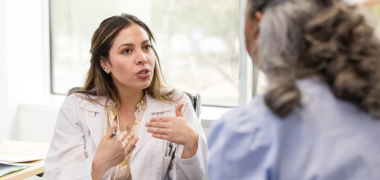
This role has a high level of AI exposure. While some human skills are required, many tasks could be automated or replaced by new technology.
Explore all careersA Clinical Scientist analyses biological samples and develops testing methods to aid disease diagnosis and treatment in healthcare settings.
Get qualified to work as a Clinical Scientist with a course recognised across Australia. Speak to a training provider to learn more.

Browse occupations related to Clinical Scientist



Discover a range of Clinical Scientist courses in Adelaide that can help advance your career in this vital field. With a focus on higher education, these courses are designed for experienced learners who already have qualifications or background in the scientific realm. One of the most popular courses available is the Bachelor of Laboratory Medicine (Honours), providing deep insights into laboratory practices and methodologies essential for Clinical Scientists in today’s healthcare landscape.
Studying for your Clinical Scientist courses in Adelaide will open doors to various career pathways within the healthcare sector. Graduates often find themselves in roles like a Medical Laboratory Technician or a Medical Laboratory Scientist. Furthermore, for those interested in specialised positions, courses can lead to careers as a Pathologist or Clinical Research Coordinator, reflecting the diverse opportunities available in this field.
The Clinical Scientist courses in Adelaide are not just about gaining knowledge; they also equip you with practical skills necessary for a successful career in the ever-evolving health sector. Students can explore related job roles such as Pathology Collector, Phlebotomist, or even delve into the role of a Medical Researcher, ensuring that you have a broad spectrum of options to consider after completing your studies.
In addition to pursuing Clinical Scientist courses in Adelaide, it is beneficial to explore related fields of study that can enhance your qualifications. The area of Pathology is a crucial component of healthcare, offering practical experience that complements your scientific education. By exploring these intertwined disciplines, you can position yourself as a well-rounded candidate, equipped for a fulfilling career in healthcare and beyond.